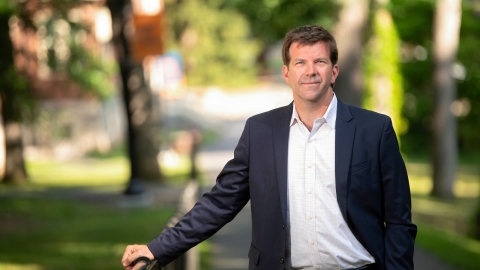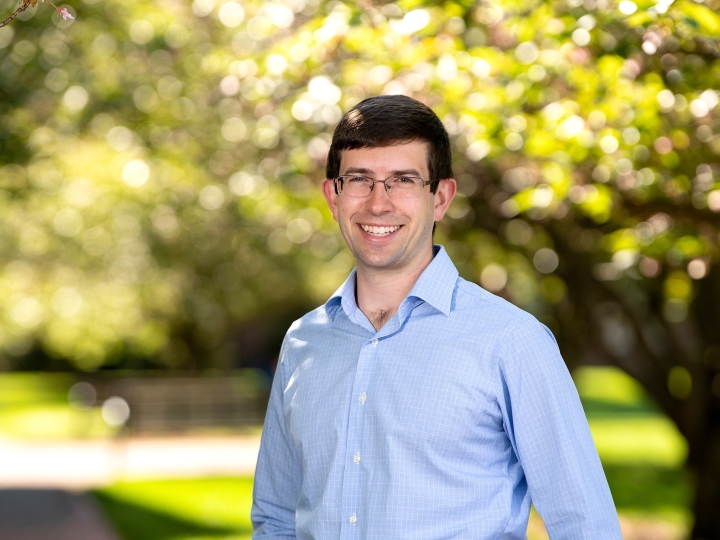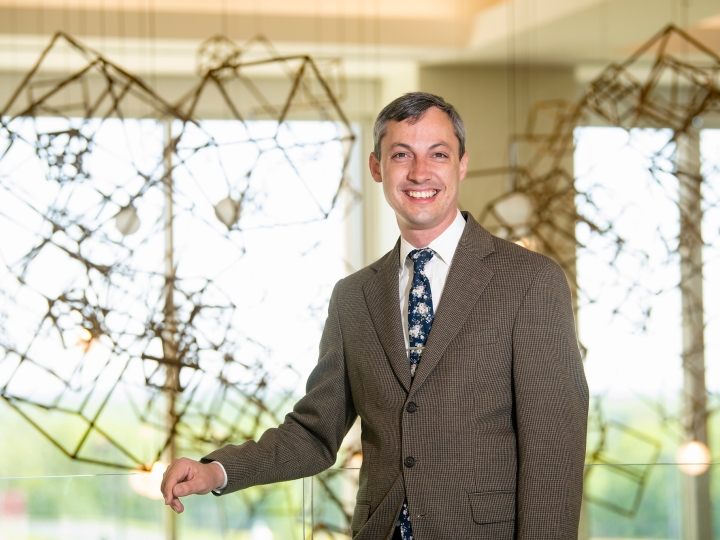
Eric Martin, Management
March 23, 2022
Freeman College of Management Professor Eric Martin previously served in the Peace Corps in Poland and worked in Ukraine examining the EuroMaidan protests of 2014. Photo by Emily Paine, Communications
We need to improve our ability to understand what each sector does best to enhance partnering and leverage capacity. Our students are learning to do that well.
Bucknell University Professor Eric Martin, management, studies international development and community change that cuts across the three sectors: public (governmental), private (business) and nonprofit or non-governmental — and has learned that these areas aren't always easily defined.
In America, these sectors are defined by tax codes, and many have expectations of how organizations and managers in each will behave. But is the private sector always more efficient and motivated solely by profit? Are nonprofits more apt to respond with compassion but usually in need of charity for funding? According to Martin, the boundaries between sectors are actually quite blurry, and that can be a good thing.
For example, Martin recently worked with a team of Bucknell faculty and students to manufacture and distribute prescription eyeglasses to people in remote Guatemalan villages. "We're trying to ignore preconceived notions about how the sectors function there," he says. "For example, should the distribution be through a national NGO or a small local entrepreneur? Or, might a national network of entrepreneurs form an NGO? We might need to deliberately blur organizational boundaries if that helps get things done."
Martin came to Bucknell after working overseas for many years. He worked on environmental projects as a Peace Corps volunteer in Poland from 1992 to 1994. He researched the coordination of international development assistance in post-war Bosnia in the late 1990s, and he spent a year in Serbia as a Fulbright Scholar. His travel, work and research have taken him to more than 30 countries.
This international experience showed Martin how differently private, government and nonprofit sectors can function overseas, especially in transitioning, developing or disaster settings. He is particularly intrigued by complex humanitarian emergencies, where speed is of the essence. He traveled to Haiti after the earthquake in 2010 to learn more about cross-sectoral partnering in the international response to that disaster. Time after time, the theme of blurred organizational boundaries reappeared - among those providing assistance as well as host countries receiving aid.
"Most problems in the world cannot be solved by one organization or a single approach from a single sector," Martin says. "We need to improve our ability to understand what each sector does best to enhance partnering and leverage capacity. Our students are learning to do that well."

